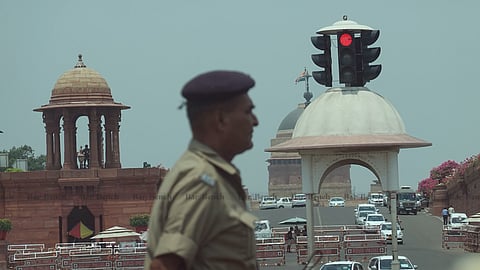
- Latest Legal News
- News
- Dealstreet
- Viewpoint
- Columns
- Interviews
- Law School
- Legal Jobs
- हिंदी
- ಕನ್ನಡ

The solution to the several thousand FIRs filed during the COVID-19 lockdown does not lie in quashing them, as claimed by a recent PIL in the Supreme Court.
Instead special judges or special courts must be formed to ensure that these criminal matters do not choke the already overburdened subordinate judiciary in India.
A PIL has been filed in the Indian Supreme Court seeking directions to quash FIRs registered during lockdown for petty offences. This seems to have been done in light of various news reports which show the staggering numbers of FIRs filed by the police in different states for violation of lockdown, especially under Section 188 of the Indian Penal Code (Disobedience to order duly promulgated by public servant).
While the Court is yet to hear the matter, this PIL is based on the wrong premise and puts forward a wrong solution to a very genuine problem that has arisen for the Indian legal system during this lockdown.
In last 25 days of the nationwide lockdown, police across states has reported a huge surge in FIRs, against those who have been found violating the lockdown.
As per the Delhi Police, it has already filed FIRs under the Delhi Police Act for violating the lockdown, impounded 10,000 vehicles and lodged 40 FIRs for violating home quarantine.
Similarly, the Uttar Pradesh Police has registered 19,448 FIRs, and booked 60,258 people for allegedly violating prohibitory regulations under the current lockdown.
The Maharashtra Police registered 34,010 FIRs for violation of the lockdown.
One wonders what these staggering numbers of FIRs imply for an already overburdened judicial system. When the courts eventually start functioning in full capacity after the lifting of the lockdown, how will these FIRs slow down the pace of the justice delivery system?
Most of these FIRs relate to simple and straight forward matters. However the solution does not lie in merely quashing these FIRs, as they may have the effect of encouraging further violation of the lockdown order, which the Police has maintained with such difficulty.
One such solution could be to have special benches for effective and quick redressal of these FIRs, instead of letting these cases seep into the already clogged system and choke it further.
Since 81% of cases pending in the subordinate courts are criminal cases (as per 2016 data), hearing of these FIRs by special benches will be effective in ensuring that the subordinate courts in India, which are especially hit during the lockdown, do not suffer further.
Before thinking of the cost of such a move, it can be done by simply allocating a particular judge/bench of judges to speedily dispose these cases, without any additional infrastructure requirements. There can also be a strict timeline in which these matters should be resolved.
The proposal to have special benches to quickly remedy the issues pertaining to these FIRs during lockdown is fairly simple and straightforward. For its implementation, either the Supreme Court and/or High Courts can, in the exercise of its inherent jurisdiction, direct the lower courts to have these FIRs heard by special benches.
A more ambitious way of resolving these matters fairly quickly is to set up special courts dedicated for this purpose, but that may require a legislation to be passed by the government.
The debate pertaining to establishment of special courts in India either for a special set of issues, such as the National Environment Tribunal (for all environment related matters) or a special set of people (such as the SC & ST Court under the SC/ST Act) is not new.
With the current lockdown, the judiciary already needs to reflect on what is slowing down the wheels of the Indian justice system and weed out any and all matters that can be done away with or swiftly resolved. The bulk of our courts’ pendency is caused by matters that can be resolved rather swiftly.
Courts need to find a way to weed out cases that no longer need effective resolution because they have been settled by the parties one way or the other. This applies mostly to the civil cases. But a system to ruthlessly clear up the cases which add to the burden is the only way for the courts to get closer to decreasing the pendency rate.
Either directing these FIRs to be heard by special judges, or directing them to be heard by special courts through a legislation will possibly nip the problem in the bud. The former is advisable, and the Supreme Court has a chance at it. The Supreme Court can direct the High Courts to advise the subordinate judiciary to have special judges hear these criminal cases and resolve them in a fixed time. That would be a way of showing leadership by apprehending a problem before it has arisen.
The author is an Advocate practicing at the Supreme Court of India.